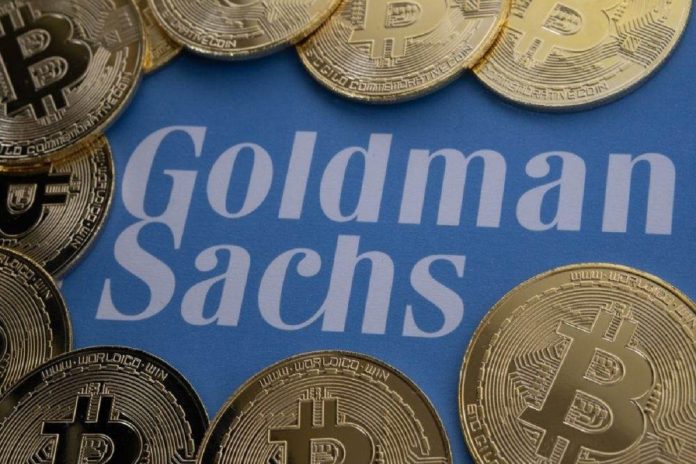While many top Wall Street players have jumped on the crypto bandwagon, Goldman Sachs, a banking giant, has chosen to keep its distance. Sharmin Mossavar-Rahmani, the chief investment officer of the bank’s Wealth Management unit, has shared her negative view of the crypto space.
Crypto is Not an Investment Asset Class
Sharmin has long been a critic of cryptocurrencies and her stance remains unchanged, despite the increasing demand from institutional investors for this asset class. In fact, she does not even consider crypto to be an investment asset class at all. In an interview with the Wall Street Journal, Sharmin stated:
“We do not believe it is an investment asset class. We are not believers in crypto.”
In contrast, Goldman Sachs’ competitors in traditional finance, BlackRock and Fidelity, have doubled down on their efforts after seeing strong interest from their clients in Bitcoin. However, Sharmin has stated that there is no such demand from Goldman Sachs’ clients.
She cites the challenge of accurately assessing the value of crypto as one of the reasons she sees no merit in this asset. “If you cannot determine its worth, how can you confidently take a bullish or bearish stance?” she questions.
Furthermore, Sharmin has criticized the crypto industry, calling it hypocritical. She points out the discrepancy between the industry’s promotion of financial democratization and the reality of a few individuals holding significant control over key decisions.
Crypto Maverick Calls Out Goldman Sachs
In his latest newsletter, popular Bitcoin investor and entrepreneur Anthony Pompliano has slammed the Goldman Sachs executive for denying Bitcoin and crypto the status of an “investment asset class”.
Pompliano emphasizes Bitcoin’s evolving role as the premier digital currency of the internet. He highlights that a growing generation, accustomed to digital interactions and spending significant time online, sees Bitcoin as the global internet reserve currency and default store-of-value.
Addressing concerns raised by others in the financial realm, Pompliano counters claims that Bitcoin lacks investment potential. Despite skepticism from some quarters, he points to the significant inflow of funds into the $2.5 trillion cryptocurrency market, particularly from institutional investors, as evidence of its growing legitimacy as an asset class.
Pompliano also refutes claims that cryptocurrencies primarily facilitate criminal activities. He cites data showing that illicit transactions account for less than 0.5% of total cryptocurrency transactions, challenging misconceptions about the integrity of the sector compared to traditional fiat currencies.
In response to concerns about volatility and claims of Bitcoin’s lack of inherent value, Pompliano offers a different perspective. He notes that Bitcoin’s volatility is primarily related to its exchange rate against fiat currencies like the US dollar, while its purchasing power has consistently increased compared to fiat over the years. This contrasts sharply with the declining purchasing power of traditional currencies like the US dollar, suggesting Bitcoin’s potential as a hedge against inflation and a store-of-value asset.

